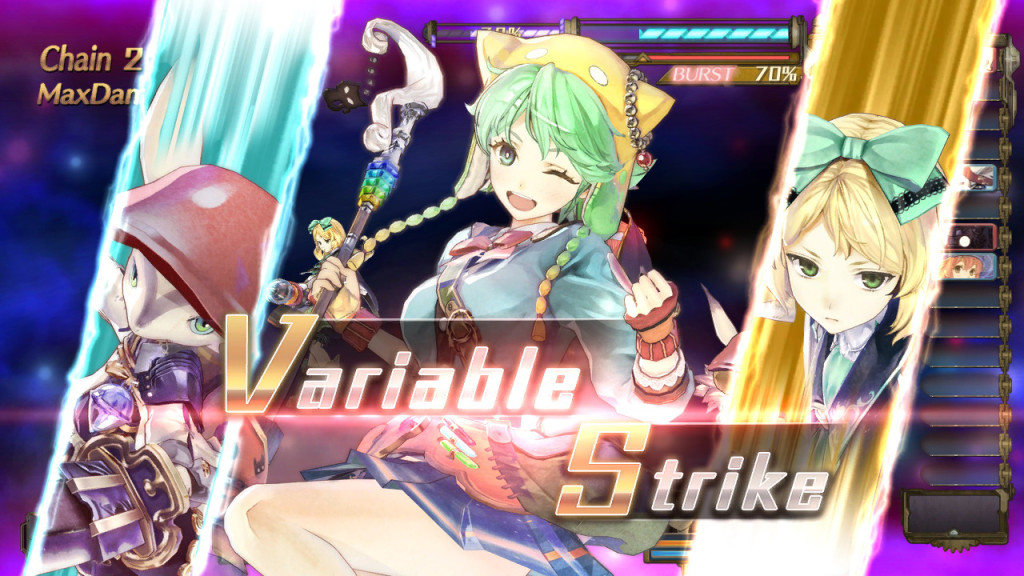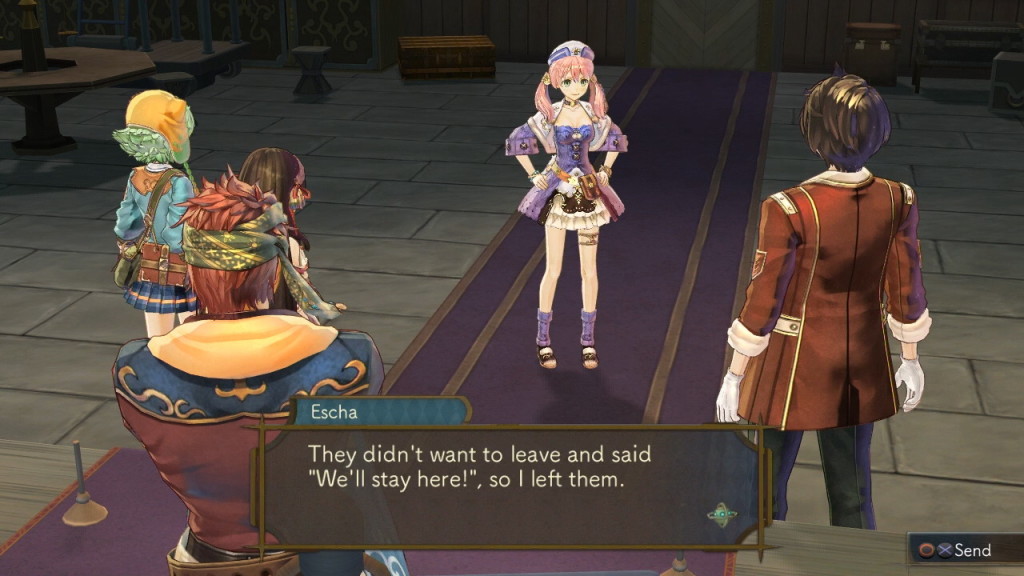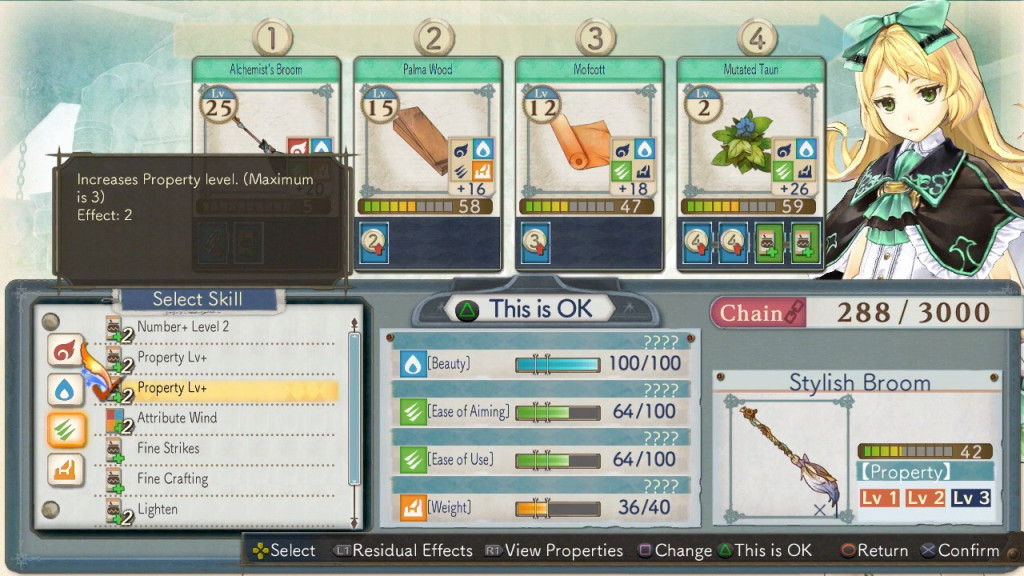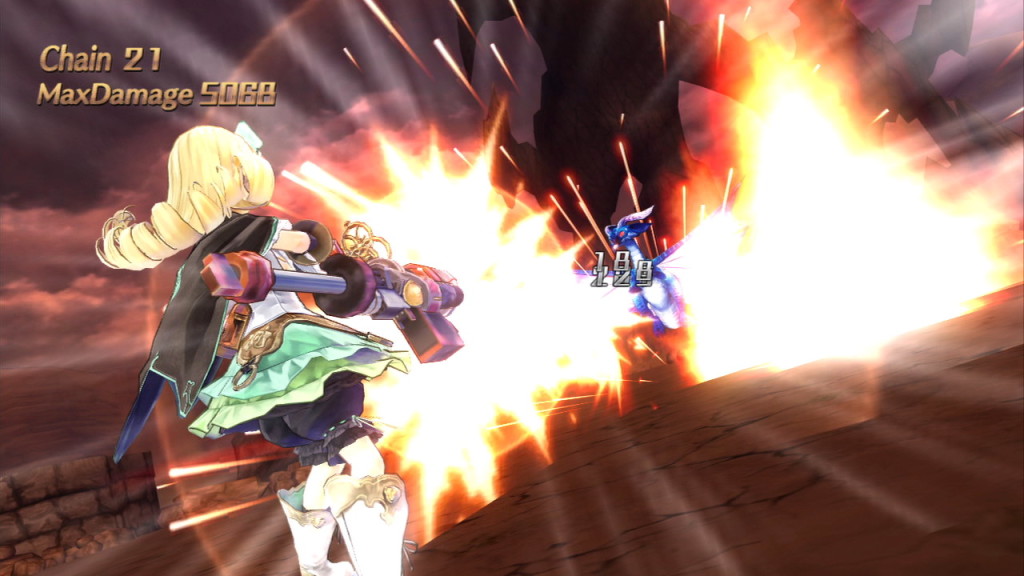
With six games on the PS3, Atelier has become one of the most prolific JRPG series on the platform. Atelier Shallie: Alchemists of the Dusk Sea, the end of the Dusk trilogy and likely the last PS3 Atelier release, continues to refine the franchise’s mechanics, focusing on removing constraints to the systems and controls.
Each game in the Atelier series is focused around an alchemist who creates items by combining components in an alchemy pot. Usually, this is a means to progress by completing tasks for townspeople, but it also functions as a way to upgrade items and create consumable items to help in combat. Gathering components is what brings Shallie out from the workshop and into the surrounding area, returning to craft after a successful outing.
One of the biggest changes in Shallie is the removal of the time-based objectives in favor of a chapter system. While I do enjoy the lack of timed objectives, it removes some of the strategy from the system. The lack of a drive to make gathering runs efficient means that you can easily just meander around, making the game far more of a grind than it really needs to be. The game does stop producing materials if you harvest too much over a short period of time, but this isn’t a huge deal, as it gives you more than enough to make what you need.

The beginning of the game — learning the ins and outs of alchemy — is a bit easier this time around. At first, I worried that the whole system had been oversimplified, but the truly powerful items will still demand an intimate knowledge with how everything fits together. Combat feels a bit less complex than Escha & Logy, the previous game in the series, and the Atelier series has never sported incredibly involved mechanics. Sadly, with the removal of the time limit, it’d help to have a more involved battle system, since you have more time to tweak with character equipment and could use a bit more challenge.
Atelier has finally broken free of the forced-perspective environments and introduced a free camera for the player to move around. While the series hasn’t had huge camera angle problems in the past, it’s nice to be able to see the entire area around you. Environments feel much larger than they did before, and without the need to watch the clock when gathering, you have the freedom to explore. The time limit has also been cited by many as what kept them away from the series, so it is very likely Gust wanted to appeal to those potential fans. It would be nice to see the time limit return as a “hard” mode, letting seasoned players retain the challenge in exchange for increased rewards.

Unfortunately, many of Gust’s games have suffered from localization hiccups recently, and Shallie is no exception. Usually they are fairly minor, such as spelling errors or a misplaced bit of text here and there. It’s not game-breaking but it does pop up from time to time. There is one major issue that’s still present as of this writing: the Growth system, something that comes up later on in the game, is currently not functioning properly. Gust and Tecmo Koei have said that a patch is in the works, so this issue will likely be resolved soon, but until then, be advised.
It’s surprising to say this about a game with an anime style, but the franchise is starting to suffer from the shortcomings of the PS3 hardware. The game is by no means clunky, but it’s clear from the odd stutter that it’s pushing the available horsepower. It’s likely that switching to a free camera has caused this, though it is probably necessary for the inevitable PS4 follow-up.

Atelier Shallie is probably the best in the series mechanically. It does a lot of experimenting to test the waters for PS4-era sequels, most notably the removal of the timer and the switch to a free camera. Though I doubt any game retaining an anime style will ever achieve mainstream Western parity with franchises like Final Fantasy, a little polish and more time weeding out pesky localization errors could bring the series on par with the big names.
Pros: No more time limit, easier start for new players
Cons: Localization issues, somewhat simple combat



















